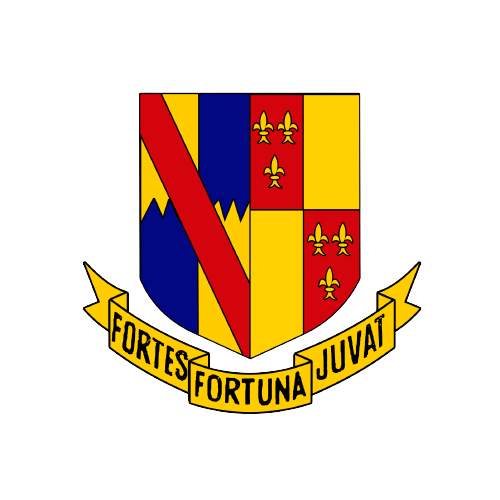
A HISTORY OF THE SCHOOL
By Kenyan standards, Cavina can claim to be a venerable academic institution. It is the second oldest British-curriculum school in Nairobi and the sixth-oldest international school in Kenya. Cavina was founded in 1950 by Hugh Massie-Blomfield, a retired colonial official who, four years earlier, had moved with his wife Jean to what was then Kenya Colony.
Born in Alexandria, Egypt, in 1881, Massie-Blomfield had just turned 69 when he established the school. That he was prepared to embark on such an undertaking so late in life may seem surprising today, but for that very energetic generation born in the late-Victorian era it was less so. He had already travelled the world, serving as a political officer in Iraq, Palestine, Egypt, India and Jamaica. He held the rank of captain after seeing action in the Mesopotamia Campaign during the First World War.
He therefore had a great deal of experience in life, to which he added experience in education after his retirement from the Department of Overseas Trade. He initially taught at Magdalen College School in Oxford during the Second World War before moving to Kenya to take up the post of Latin and French master at Kenton College, where his wife – a trained nurse – became matron. After a spell at Greensteds, he became an advisor to the Department of Education. Having read Greats at Oriel College, Oxford, and being a consummate linguist with mastery over a variety of European languages, as well as Arabic and Hindustani, Massie-Blomfield was in many ways a natural schoolmaster. In founding Cavina he was undoubtedly answering the calling to which he was born.
Hugh and Jean named the school after the ship on which they first met in the 1930s. The SS Cavina, a former banana boat, was bound for Jamaica, where Hugh had recently been appointed the colony’s trade commissioner, or cabinet minister for trade in modern parlance.

The SS Cavina
The school’s early years were modest, and there was initially just one pupil, a boarder. The East African Standard in 1954 described Cavina as ‘Nairobi’s smallest school’, noting that it had just one classroom, 18 pupils and two teachers. Because the school prepared boys and girls for examinations, either to gain entry to public schools in Britain or for the School Certificate, Cavina was known as a ‘crammer’. In truth, it was anything but.
“Our lessons consisted of three two-hour sessions, where topics could wander all over the place, from Latin to Greek to History, English Literature and back to French,” recalls Vivi Marshall who was at Cavina from 1955-56 to prepare for her Preliminary Certificate. “The learning curve was truly dramatic, in every sense, and I loved my schooldays from then on.”

Founder
H. MASSIE-BLOMFIELD
Before the end of the Fifties, Cavina became a fully-fledged prep school. In keeping with the times, the school became single-sex and girls would be excluded for the next quarter of a century. Massie-Blomfield died in October, 1968, having been headmaster for 18 years. The school remained in the hands of the Massie-Blomfield family, first under Jean until her death in 1974 and then under her son Anthony who returned to Kenya that year. Between 1968 and 1976, Cavina had four different headmasters, Mr Jenner, Charles Williams, Graham Harris and Jay Mann before Anthony Massie-Blomfield took over the position in which he remained for more than 40 years until his retirement in 2021.
The school, now steered by a board of directors charged with securing its long-term future, is in many ways very different to what it was in the Fifties. Geographically, it is considerably larger, with the purchase of two additional properties on either side of Elgeyo Marakwet Road (formerly Gordon Road) complementing the original site on what was then Hurlingham Road (now Argwings Kohdek Road). The pupil body is much larger too, with 155 pupils, including girls who made a welcome return in 1981, in the prep school and 100 more in the pre-prep unit, which was founded in 1996. But in its most fundamental ways the school has not changed. In its traditions and in its God-honouring Christian philosophy, Cavina remains true to the vision of its founder.
